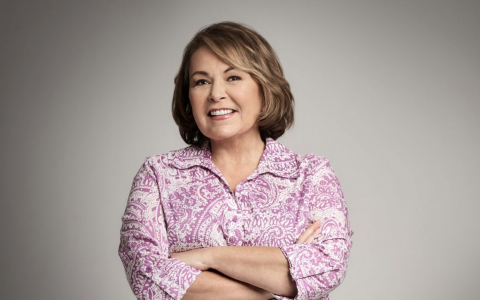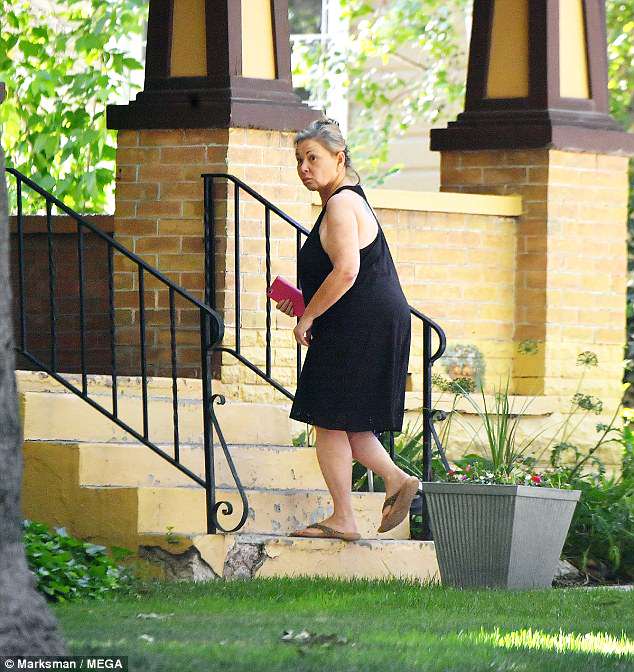
Disgraced star will get yet another second act. But when the hottest show around evaporates overnight it’s time for everyone involved to check their assumptions about professional risk.
Roseanne Barr has been up and down endless times over the years. Like the character she occasionally plays on TV, she’s won the career lottery before and gambled the winnings away on gut gestures.
Canceling her show at the top of the ratings charts — 10 million viewers is a big, big deal these days — is really just another gut check for her personally. The management professionals around her will negotiate the best exit for her they can and she’ll move on to the next phase.
That phase may actually be a better vehicle for her to do what she’s always really loved, which is express herself.
But for everyone she’s worked with over the decades, this entire experience has been a warning that every collaboration is a risk. And risk means that getting the chance to create great things with other people also exposes you to huge disappointment.
 Live and unfiltered
Live and unfiltered
For Roseanne personally, it’s always only peripherally about the money. For one thing, she’s 65 and has generated approximately $80 million across the decades.
Granted, Tom Arnold claimed at least $50 million of that in the no-prenup divorce, but what’s left behind has given her the freedom to pick her own projects.
Recent pictures of her at home in Salt Lake City reveal that she doesn’t live lavishly at all. While the house is nice enough, upkeep clearly isn’t a priority.
She could always retire. But she loves attention. When ABC took her show away from her last week for making a racist joke on Twitter so weak it might’ve even been inadvertent, the real sting was losing the audience.
Twitter has transformed her whole relationship to that audience. While the absolute numbers are smaller, there’s no real emotional distinction between broadcasting to 10 million people and having 900,000 people following your every quip online.
And unlike a weekly show that takes dozens of people to keep the moving parts in play, the gratification from Twitter is immediate. In theory all you have to do is type the words and push the button, and then you’re out there live in front of the world.
That’s what Roseanne loved about the medium and it’s what got her in trouble. No filter means there’s nobody watching to step in when you do something dumb. Embracing the immediacy means swallowing the risk of failing in public.
But failing in public is what she does constantly, because that’s how she keeps reaching for the moments of acclaim. It’s a perpetual balancing act, as natural as learning to walk by falling forward.
A lot of us find this horrifying. We’re not about taking big professional risks. Arguably the entire advisory field revolves around risk mitigation, flattening the efficient frontier with other people’s money.
It’s where her money comes from. And it means staying on the rollercoaster through all the twists in the hope that every lurch will add up to a thrilling ride.
Right now Roseanne’s safety harness is unbuckled. She’s off the show. She can do whatever she wants, even if right now that just means internal arguments with her management team.
It’s not hard to imagine she’s having the best time in years. Or will be soon, once she settles into her new relationship with the public.
She could easily take her persona to a morning chat format, keep the line between reality and entertainment blurred. After all, she’s already done radio and standup comedy.
Arguably that’s what the social media presence already does. If some channel somewhere wants to pay her for that, I’m sure her team will be receptive. And if not, I’m sure she’ll keep talking until people take every last megaphone away.
Whether you think she’s the voice of the American Main Street or just another aging crank really boils down to the same answer in the end. She’s talking. Listen or don’t. That’s always been the world we live in. Social media gives everyone the megaphone.
Paychecks and partnerships
That said, money complicates things. The economic scale of network television not only built her but provided paychecks for a whole lot of people around her. With Roseanne, the show apparently meant $60 million to the network and every one of its partners, large and small.
Some of those partnerships were creative. Others were technical. And still others were organizational. There’s even enough money in this business to support people who do nothing but protect the entire enterprise — their job is to keep it going and the cash flowing for everyone.
Those people are the advisors. On a show like this, they really have one job, and that’s to keep the rollercoaster on the rails. Beyond that, there’s no hard line.
The money flows faster as the buzz builds. If the ride is going too fast, the advisors need to see that it’s time to tap the brake. They didn’t do that here. Nobody stepped in weeks ago to build any structure around the star’s social media presence.
Think about the filters and failsafe mechanisms around your professional life. It’s all designed to lower the risk of catastrophe to a level that we can all live with. Roseanne evidently didn’t have that.
Her style, her creative process and her brand rely on subverting anything she can’t tear down. It’s what made her famous in the first place. It’s what built that $60 million franchise and her personal fortune.
With stronger filters, we wouldn’t have a show in the first place. As we say, risk is what we accept in order to get the chance to create wealth. She’s always been a dangerous ride.
(Compare to Bill Cosby, where people around him thought everything would go smooth until the reruns were pulled and the money stopped.)
She’s the market. She’s life. While the people around her may not be comfortable with that level of risk, it’s up to them to communicate to her the value of testing the brake once in awhile on the wild curves.
Her team evidently never did that. Maybe they tried. Maybe they loved the ride and wouldn’t change anything.
There’s a real sense in the coverage of this show that everyone involved knew that it could crash at any time. She’s crashed before. But a lot of the people who know her rollercoaster best signed on anyway for one more spin.
The network, on the other hand, hit the brake hard when the screaming started. They’re out their biggest hit in decades and are on the hook for at least $7 million in production costs for episodes that will never air.
I can’t help but think about retail investors who panic when the VIX edges up. Suddenly they’re selling everything and taking a huge hit. If Roseanne’s advisors needed to urge a little caution now and then, ABC’s people needed to roll with a little volatility.
Of course that’s a hard thing to do when you’ve got a big paycheck on the line. You want the ride to last as long as it can and you want it to be smooth. This is why so many Fortune 500 CEOs are really just killing time while their companies stagnate, for example.
Maybe modern TV is too risk averse to ever support someone like Roseanne again. She’ll be fine. The Roseanne of tomorrow will shock people on Twitter or some other platform.
The executives will retire and one day they won’t be replaced.
The people who actually work the show are disappointed. Longtime friends have lost their jobs and residual payments from syndication. Pulling reruns crushed their retirement plans.
They’re going to need to find ways to fill the gap. The lucky ones will go back into retirement. Everyone else will look for other work — in the meantime, any talk about a replacement show amounts to a severance package because without the star involved, it’s unlikely to be forever.
No job is forever. People who work the show have been philosophical. In the grand scheme of things, it’s just freelance and they knew what they signed up for.
Without the risk and a little screaming, there wouldn’t have been a show in the first place. There probably won’t be a show in the future if nobody risks failing in public.
But everyone’s taste for risk is different. And trusting other people is a risk in itself. TV is a collaborative business. Lone wolves wrote books, then they moved to Twitter.
The world is about change. Alert professionals keep their eyes open and roll with the changes, until it's time to go.



